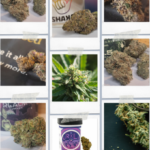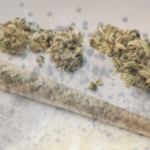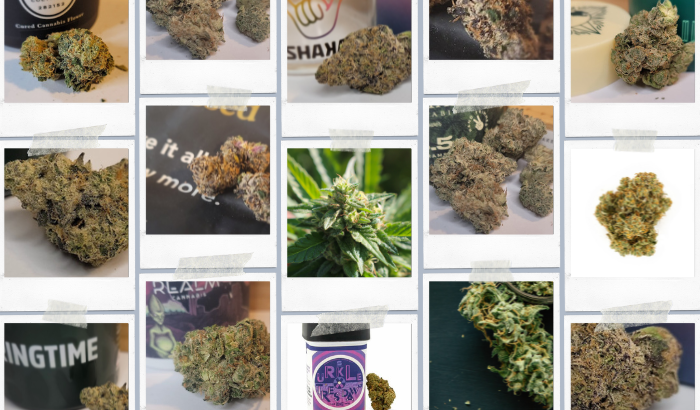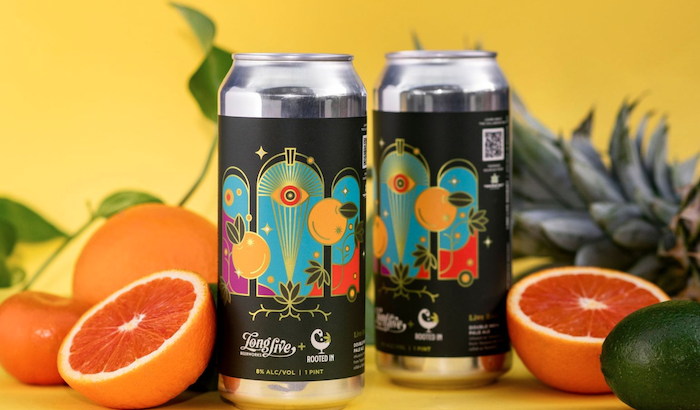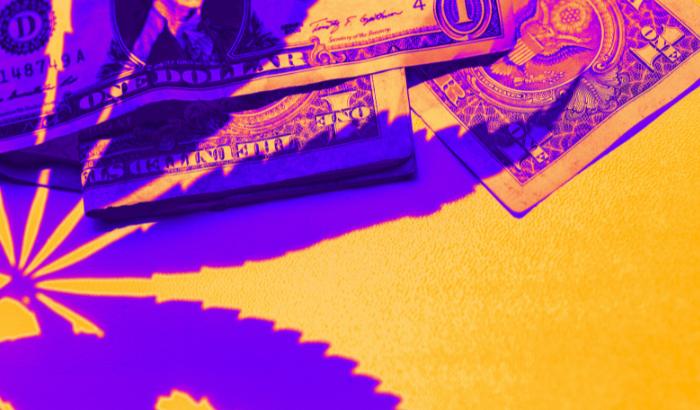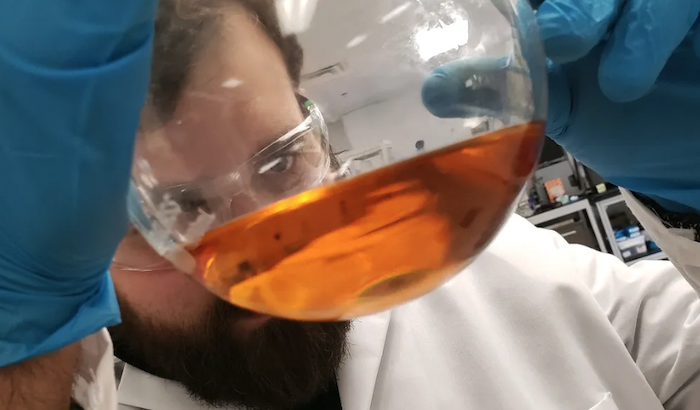
“Strain specificity is well observed in smoking but it’s not in edibles and other formats. We’re able to capture that strain-specific profile and put that into something.”
The sign on their booth read, “Roaches for Research.” Underneath it were two jars—one for blunts, and another for old joints.
Yeah, sure, I thought. Sounds like a good ploy to get a whole lot of free weed.
As it turns out, the team from Real Isolates behind the request placard at the recent HighLifeStyle Show really do research cannabis in various forms, including roaches. Based in Beverly, the group bills itself as a “family-owned biotech company at the forefront of developing innovative extraction methods from cannabis smoke.” Specifically, they specialize in “endocannabinoid pharmacology and medicinal natural product chemistry,” and have “developed novel technology that extracts cannabinoids from cannabis smoke.”
And that is part of why they wanted my expired spliffs.
Following the conference, Real Isolates teamed up with MCR labs to analyze the roaches. As the former’s VP and Co-Founder Andy Westerkamp explained, “cannabis users have identified that smoking roaches feels different,” and “Real Isolates proposes that this is likely due to chemical changes that occur during the smoking process.” He continued, “The purpose of the research is to observe and identify the chemical changes present in the roach. … People deserve to know what they’re smoking.”
By focusing on “how high temperatures can change or transform the active molecules in cannabis,” we can understand “why smoking a cannabis product, such as a joint, in more than one sitting can feel different than the first-time use.” And “by using smoked roaches,” “scientists will be able to discover important chemical differences in the roach that lead to the different effects.”
Real Isolates was recently issued a patent for its “novel method used to extract cannabinoids and other compounds from cannabis smoke,” which is the intellectual property they are licensing to product manufacturers. We asked co-founders Westerkamp and Dr. Miyabe Shields, Ph.D, a scientist who specializes in the endocannabinoid system, about the implications and real-cannabis world applications of their tech, as well as their Smokenol “CBD forward cannabis smoke extract derived from hemp” sold under their Profound Naturals brand.
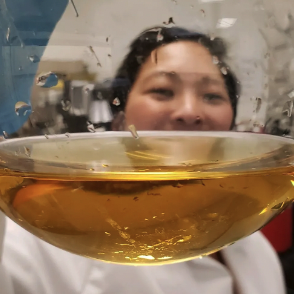 What exactly is it that you do?
What exactly is it that you do?
AW: We’re a biotech company that’s developed a method to selectively capture compounds from smoke. There’s like 2,000-plus compounds in cannabis smoke; we’re interested in cannabinoids and terpenes and things like that. We have filters that can capture those compounds and see how they change when you apply heat.
How does it work?
AW: [Their proprietary tech] goes on the back of a big oven, we throw a bunch of cannabis in there, smoke those through, and we capture the cannabinoids and terpenes. We smoke it for you, that’s our tagline.
What would the consumer product [made using this technology] look like?
AW: It’s cannabis smoke extract. In its distilled form, it looks very similar to an ethanol extract. It could be used in cartridges, edibles. Part of the technology is being able to deliver what you can consume from smoking in an edible form, not just inhaling.
Is this a category?
AW: We’re creating one. We license our technology to cannabis manufacturers, and we have a hemp license with the Massachusetts Department of Agriculture [that we use for our] Profound Naturals products.
So is that the same technology?
AW: [Yes], just with hemp.
A little more about how it works …
MS: THC is what most people associate with feeling high. But if you change the shape of this molecule, it will change the effects. Heat changes the effects of this molecule. … It will interact with your receptor in a different way, and it will change the way that you feel. It’s part of the reason that smoking feels different from edibles.
What kind of byproduct is there from this process?
MS: The word byproduct just implies that everything else present isn’t important or doesn’t contribute to the effects, so it’s complicated because I don’t think we know enough about the plant or about the complex formulations in it to know yet what is or isn’t contributing to the effects that people prefer.
AW: People have been smoking for thousands of years and they’ve been consuming this huge variety of compounds in the smoke—all of them. We’re selectively capturing cannabinoids and terpenes, that’s our focus for the research—how does the heat from smoking and vaping and dabbing transform the starting material? What does that turn into and can we capture that and turn it into something so people can eat something or drink something and get the effects profile, the chemical profile in the smoke?
Strain specificity is well observed in smoking but it’s not in edibles and other formats. We’re able to capture that strain-specific profile and put that into something. That AK-47 effect from smoking—put it in a drink, put it in an edible.
MS: A lot of the strain-specific edibles getting made, we’re not sure if they lead to the same strain-specific effects, and a big piece of that has to do with the transformation.
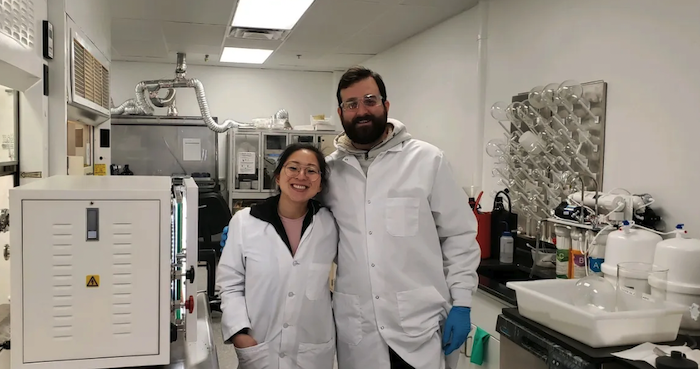
Where would you say you are in your research? Where are you on your journey?
MS: It’s early. We’re one of the only groups that are doing this research because smoke is stigmatized. There’s a lot of negative research on cannabis smoke and smoke in general; we’re not denying that that research exists or saying it’s not valid, it’s just that there is no effort put into researching the positive benefits.
AW: We’re about three-and-a-half years into this. We started by taking my dab rig and cranking it to about a thousand degrees. CBD isolate was our first experiment—[when heated] it transformed into 18 distinctive compounds that were cannabinoids.
MS: Research is still being done on isolates, too, because in reality we still don’t understand a lot of these molecules at their base level. It’s a complicated reality of what is cannabis and what is cannabis as a medicine and what makes it special? I think a piece of what makes it special is what we can’t yet conceptualize but we’re working on it.
AW: To make a very complicated subject simpler, we see a lot of obsession with THC, but when you smoke, you’re not just consuming THC. It’s transforming into CBN and other THC derivatives and other cannabinoids. We think the research how we’re doing it is important because consumers who are using all this smoke and inhaled products really don’t know what’s happening. And now we know it’s not all about THC, or all about CBD, but rather about a huge chemical diversity found in smoke.
MS: It’s known that there are benefits for specific strains, and it’s known that we can’t always replicate that, but it would be a big step toward using cannabis as a medicine and as something that can be reproduced the same way.
AW: There are millions of Americans who have chronic respiratory problems and can’t smoke but could benefit from the effects. We can use this research technology as a production method to create those extracts.





